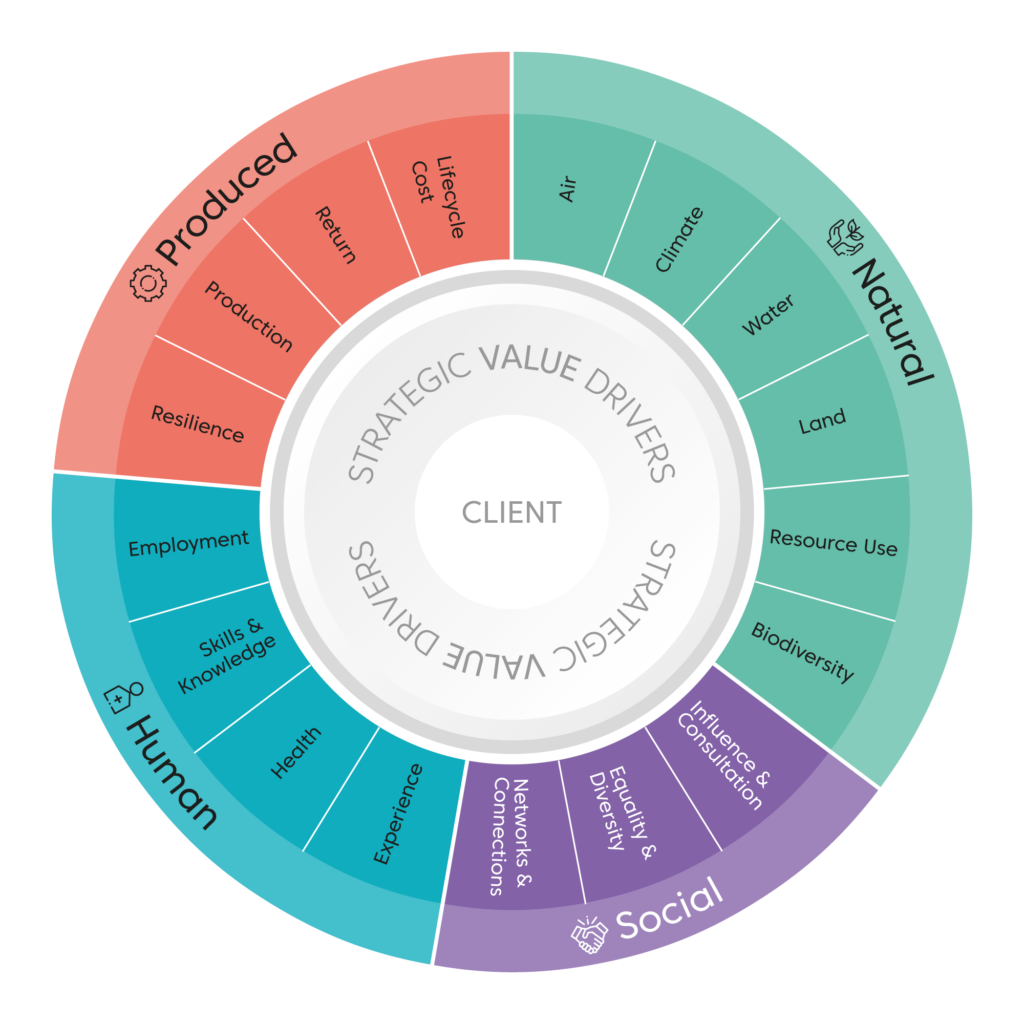
Posted 11th December 2020
“To drive better decision-making and deliver measurable value improvement.”
This was the fundamental reason that the Construction Innovation Hub initiated the Value Toolkit back in July. A suite of tools and processes designed to empower policy makers and clients to make more informed value-based decisions, the Toolkit was developed to be a game-changer for how value is understood in the UK built environment sector.
This collaborative project commenced with a handful of organisations committing to try and change the face of value in construction, and over the past five months has grown into an expansive, cross-sector network of over 120 partners across Government and industry.
The process that a user encounters through a digital platform will become clearer through the lens of the Value Toolkit, which aims to provide tools that a commissioner, procurer or provider of built environment services can use to better understand the value that is or can be generated across a project, programme or portfolio of assets.
The basis of this model is one of ‘capitals’; the required elements identified by an organisation for the delivery of its products and/or services. The fundamental idea is that when each of the capitals increase, we create business success and profitability. With a capitals lens, we also get a more holistic view of the value creation and delivery, rather than being restricted to that of financial transactions.
The project started off with five capitals, but has now moved to four (Natural, Social & Human and Produced) as we dived into the interlinkages and overlaps between the Toolkit’s different themes, supported by the Capitals Coalition and the Relevant Authorities.

Social Value UK is proud to be one of the Relevant Authorities for the Value Toolkit, convening 17 of our network’s experts to consider how Social Capital can be measured and support the development of the Value Definition.
So, is social capital the same as social value? The short answer is no, but there are many shared touch points.
Themes that we associate with social value are captured between all the Capitals, but Social and Human Capital are where we find some of the most popular social value themes. This is because they typically cover networks with the shared norms, values and understanding that facilitate cooperation within and among groups (social capital) and the knowledge, skills, competencies and attributes embodied in individuals that contribute to improved performance and wellbeing (human capital). Therefore, when the two Relevant Authorities for Social and Human Capital merged in October, we were delighted to have an opportunity to align our two teams of experts, coalescing our ideas and understanding how we can strengthen our efforts to define value.
There are only a few weeks left of 2020 and in theory, the end of the year would have concluded Social Value UK’s planned involvement in the Value Toolkit… But things have evolved and changed, new tasks have arisen and with the launch scheduled for the second quarter of the new year, we are excited to announce that we’ll continue to support this important project into 2021.
Stay tuned!
For more information please visit the Value Toolkit project page or contact Charlotte at [email protected]
